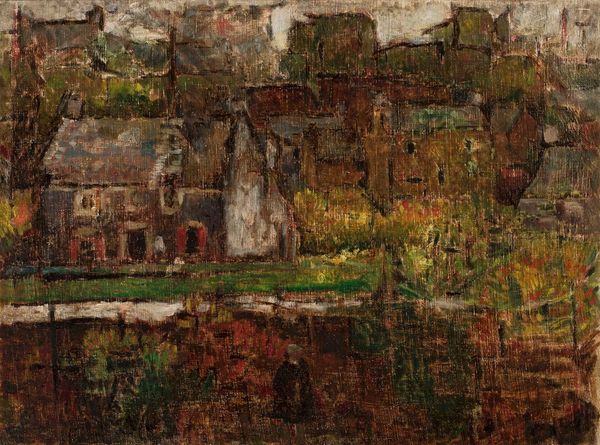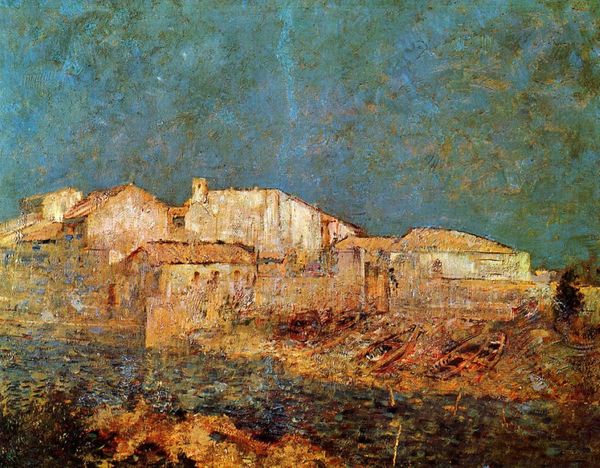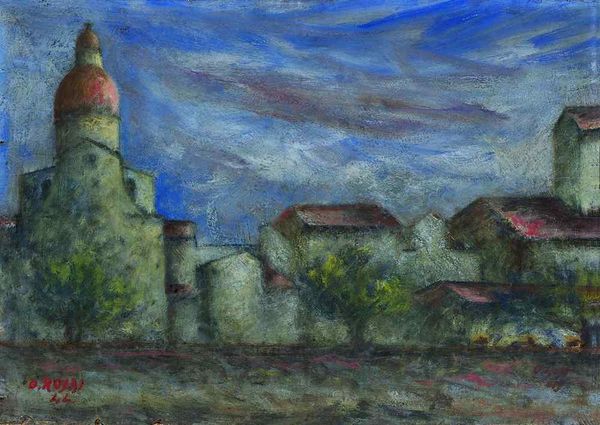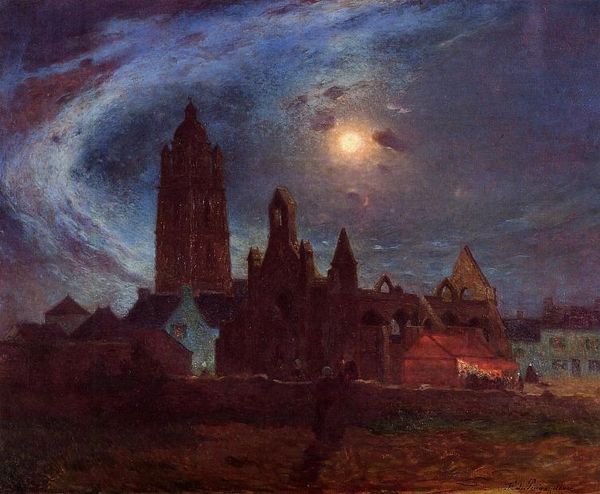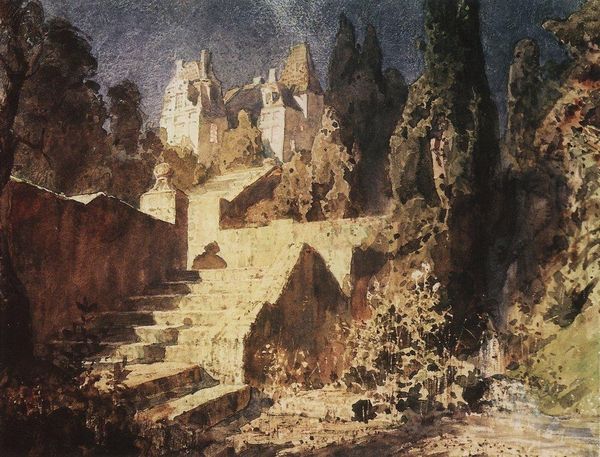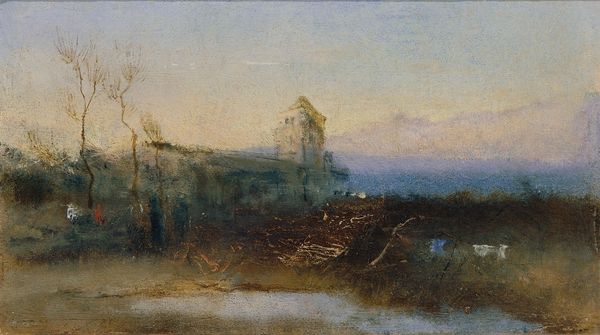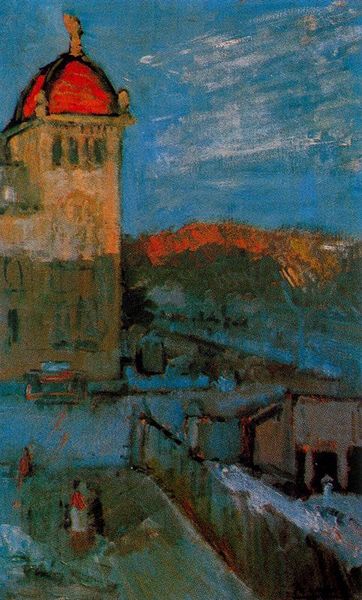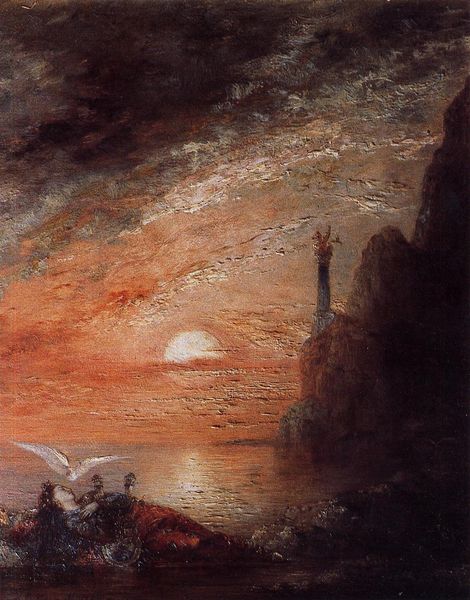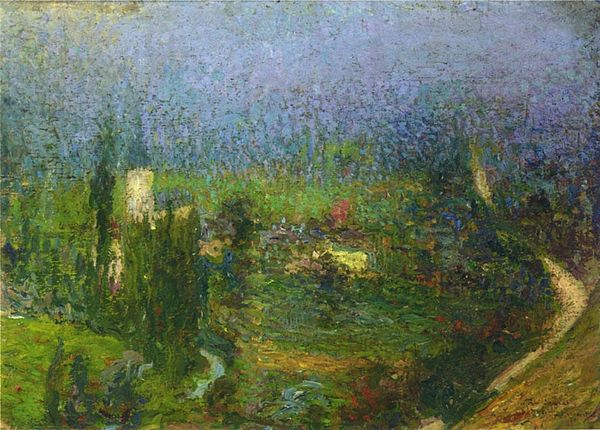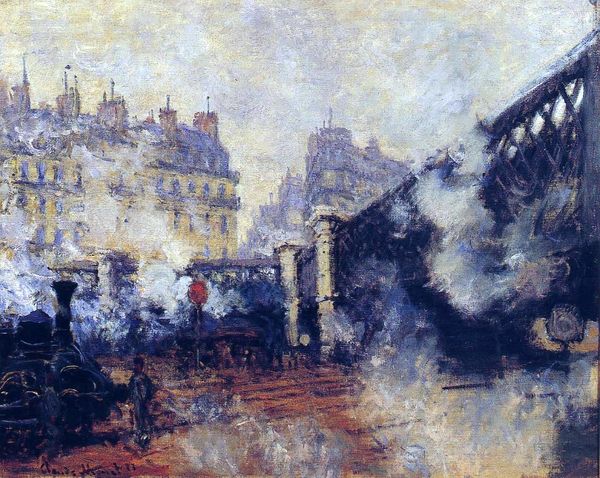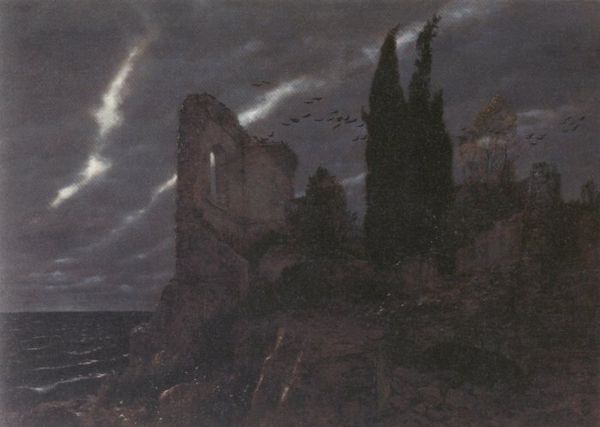
oil-paint
#
oil-paint
#
landscape
#
impressionist landscape
#
oil painting
#
expressionism
#
cityscape
#
history-painting
#
modernism
Copyright: Public domain
Curator: Standing before us, we have George Washington Lambert's haunting 1916 oil painting, "Destruction of Arras." Editor: It's incredibly somber. The color palette is almost entirely muted yellows and browns, casting this desolate scene in a perpetual twilight. The effect is quite powerful, a weight that settles in your chest. Curator: Indeed. Lambert, an Australian war artist, captured Arras after intense bombardment during World War I. This work is far from celebratory; it’s a stark reminder of the cost of conflict. What strikes you most about its historical context? Editor: The emptiness is almost overwhelming. The visible buildings that remain have empty doorways, empty window frames and lack roofs: spaces filled with the ghosts of domestic lives and family rituals interrupted by forces beyond comprehension. It shows a society stripped bare and begs us to confront how war not only demolishes physical structures but disrupts the social frameworks of ordinary life. Curator: It almost feels surreal. Lambert’s expressive brushstrokes almost verge on expressionism in a really quite interesting departure, wouldn't you say? There's this tension between representation and abstraction, particularly in the rendering of the rubble and the sky. Editor: Absolutely, this isn't about precise documentation but rather about conveying an emotional reality. The city’s essence, its collective history is reduced to fragments. The rubble stands as a metaphor for broken treaties, shattered political ideologies and the ultimate betrayal of human lives in pursuit of power. And who paid the highest price? Working class soldiers. I wonder what they saw through the gaps and broken structures. Curator: Which echoes down the decades, of course. Yet there's also a strange beauty amid the devastation, wouldn't you agree? A certain melancholic grace in the decay. It's as if nature itself is slowly reclaiming what’s been lost. The indomitable weeds take hold once more. It does feel rather poignant! Editor: I agree. Looking closer I find there is always hope, like a weed poking through the concrete, but even if it's slow the resilience of life pushes forward regardless. Perhaps this is a memorial, yes, but more importantly, a monument to the persistence of humanity. It's really important we confront it with compassion and remember that history and its repetition rests upon the vigilance of individuals and that collective efforts towards justice and equality are fundamental.
Comments
No comments
Be the first to comment and join the conversation on the ultimate creative platform.
